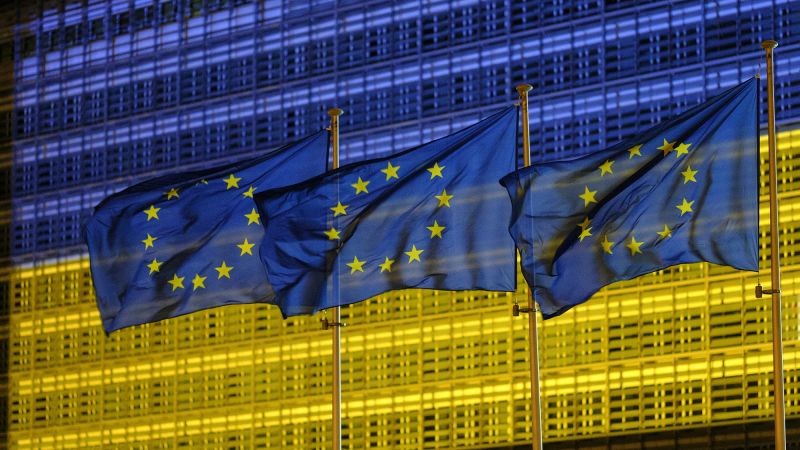Why Won't Europe Use Seized Russian Funds to Aid Ukraine? A Complex Legal and Political Minefield
The war in Ukraine has prompted unprecedented sanctions against Russia, leading to the freezing of billions of dollars in Russian assets across Europe. A question burning on many minds, however, is why these seized Russian funds aren't being used to rebuild Ukraine and compensate its citizens for the devastation caused by the ongoing conflict. The answer, unfortunately, isn't straightforward and delves into a complex web of legal and political obstacles.
The Legal Hurdles: Sovereign Immunity and Due Process
One of the biggest hurdles is the principle of sovereign immunity. This legal doctrine generally protects the assets of states from being seized by foreign courts. While exceptions exist, particularly in cases of egregious human rights violations, establishing such violations within the context of international law and proving them in court is a lengthy and arduous process. Successfully challenging sovereign immunity requires irrefutable evidence and meticulous legal maneuvering.
The Difficulty of Proving Direct Causation
Furthermore, proving a direct link between specific seized assets and the harms inflicted upon Ukraine presents a significant challenge. Tracing the origins of funds, demonstrating their direct contribution to the war effort, and establishing a clear causal relationship between the assets and the damage in Ukraine requires extensive financial investigation and forensic accounting. This is a time-consuming and resource-intensive undertaking.
Political Roadblocks: Differing National Interests and Legal Interpretations
Beyond the legal complexities, significant political obstacles hinder the swift repurposing of frozen Russian assets. European Union member states hold differing views on how to proceed, reflecting varying national interests and interpretations of international law. Some nations are more hesitant to set precedents that could jeopardize their own assets in the future, while others prioritize the rapid disbursement of aid to Ukraine.
The EU's Cautious Approach: Navigating Legal Precedents
The European Union has adopted a cautious approach, carefully weighing the legal implications of any decision to utilize the frozen assets. They are acutely aware that setting a precedent for using seized state assets to fund war reparations could have far-reaching consequences and may even be challenged internationally. This careful consideration underlines the complexity of the issue.
Potential Solutions and Future Directions: Exploring Legal Avenues and International Cooperation
While immediate use of seized assets remains legally and politically challenging, several avenues are being explored. These include:
- Strengthening international legal frameworks: Developing clearer international legal standards for dealing with state assets in times of conflict could streamline the process of asset recovery and utilization.
- Enhanced international cooperation: Closer collaboration among nations on asset tracing, legal proceedings, and evidence gathering can improve the efficiency of legal actions.
- Focusing on specific, provable harms: Concentrating efforts on linking specific assets to documented instances of war crimes or other egregious violations may increase the likelihood of successful legal challenges to sovereign immunity.
- Exploring alternative mechanisms: Investigating other mechanisms for compensating Ukraine, such as leveraging international loans and development aid, could complement efforts to recover and utilize seized Russian assets.
Conclusion: A Long-Term Strategy is Needed
The use of seized Russian assets to aid Ukraine is a complex issue with no easy solutions. While the desire to provide swift and substantial financial assistance is understandable, the legal and political obstacles require a meticulous and patient approach. A long-term strategy focusing on strengthening international law, fostering cooperation, and exploring various legal avenues is crucial to achieving justice for Ukraine and ensuring accountability for Russia's actions. The journey toward utilizing these frozen assets is likely to be a prolonged one, requiring sustained international collaboration and legal innovation.
